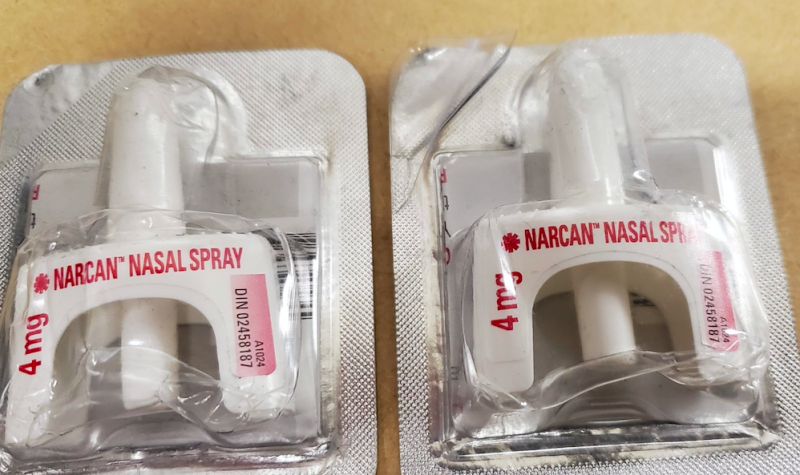Starting next June, Ontario workplaces considered to be at risk of experiencing an opioid overdose must make naloxone kits accessible, and must arrange for staff to be trained to administer them.
Naloxone is a fast-acting drug used to reverse the effects of an overdose.
The government announced Wednesday that, for up to two years, it will provide free naloxone nasal spray kits and training for two workers.
On June 1, 2023, legislation kicks in that mandates the availability of naloxone in any location where employers "become aware, or ought reasonably to be aware, that there may be a risk of an opioid overdose, i.e. if a worker discloses an opioid use issue, if needles or other opioid paraphernalia are found, or if they are otherwise given information that would lead them to reasonably conclude there is a risk of an overdose in the workplace."
Labour Minister Monte McNaughton said Ontario, like the rest of Canada, is in the middle of an opioid epidemic made worse by a toxic supply of recreational street drugs.
Last year 2,819 people died from opioid-related causes in the province, the highest number on record and more than double the death toll in 2017.
McNaughton said it's why Ontario is the first jurisdiction in North America to require naloxone kits in at-risk workplaces "to raise awareness for those struggling with addiction, reduce stigma and save lives."
The mortality rate from opioids is particularly high in the Thunder Bay region and other parts of Northern and rural Ontario.
Workplaces most likely to be affected by the legislation include construction sites, bars and restaurants.
Of the workers who died from opioid-related causes in Ontario last year, nearly one-third were employed in construction, but the minister said he hopes every employer in the province will have a naloxone kit on hand by the end of the decade.
Businesses can determine if they are eligible for the assistance program, and find additional information on accessing naloxone kits and training, at Ontario.ca/workplacenaloxone.
Paul Rosen, a Paralympian and motivational speaker, said naloxone saved his life.
Rosen, who won a gold medal with Canada's national sledge hockey team at the 2006 Paralympic Games in Italy, said he lives "in addiction recovery from decades of legal prescriptions for opioids [due to] injuries at the highest athletic level of international competition...I live by the words 'Never Give Up' and am still here because naloxone saved my life."
St. John Ambulance is a partner in the government program.
"The opioid crisis in Ontario continues to be a significant public health crisis and unfortunately shows no sign of ending anytime soon. The steps being taken today will save lives," chief learning officer Shawn McLaren said.
